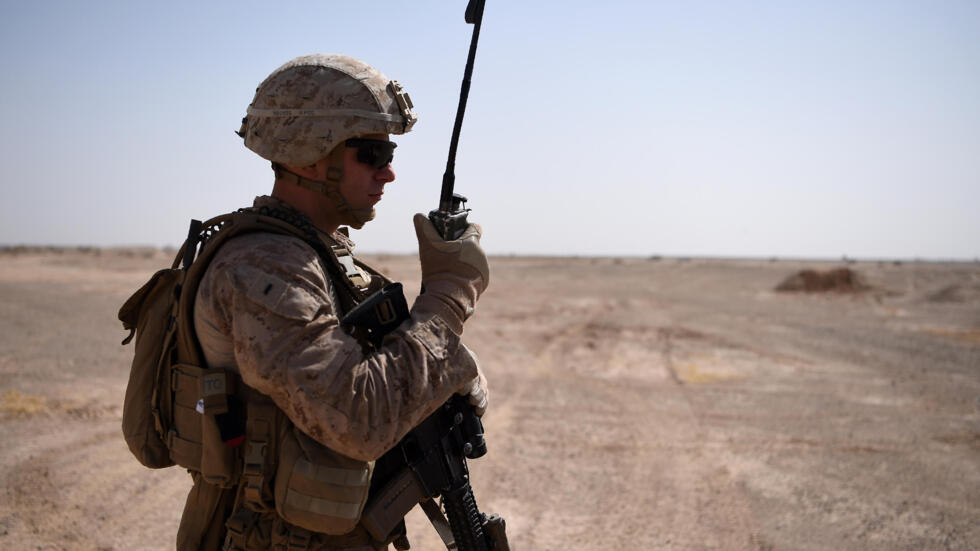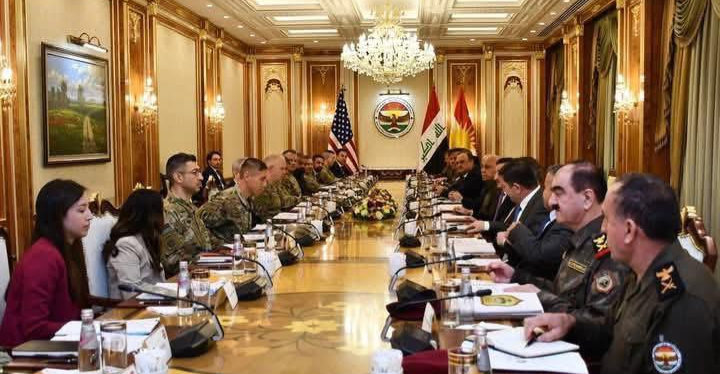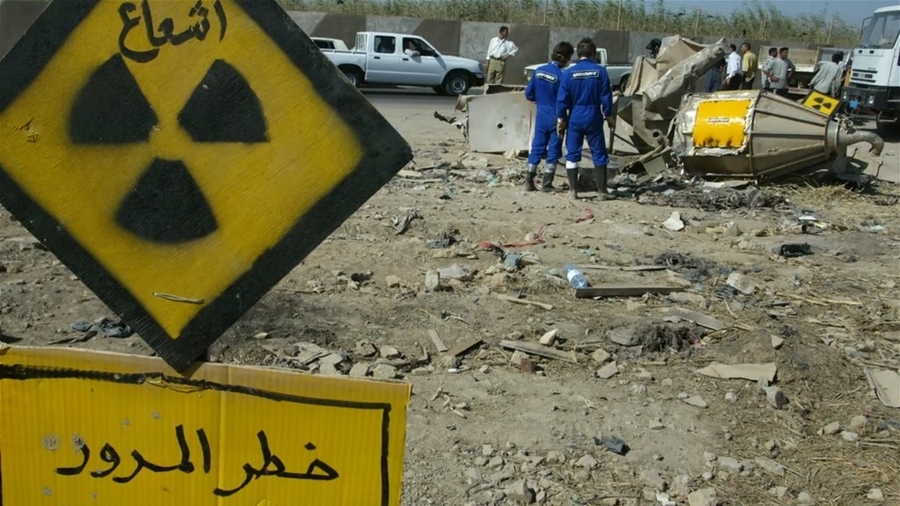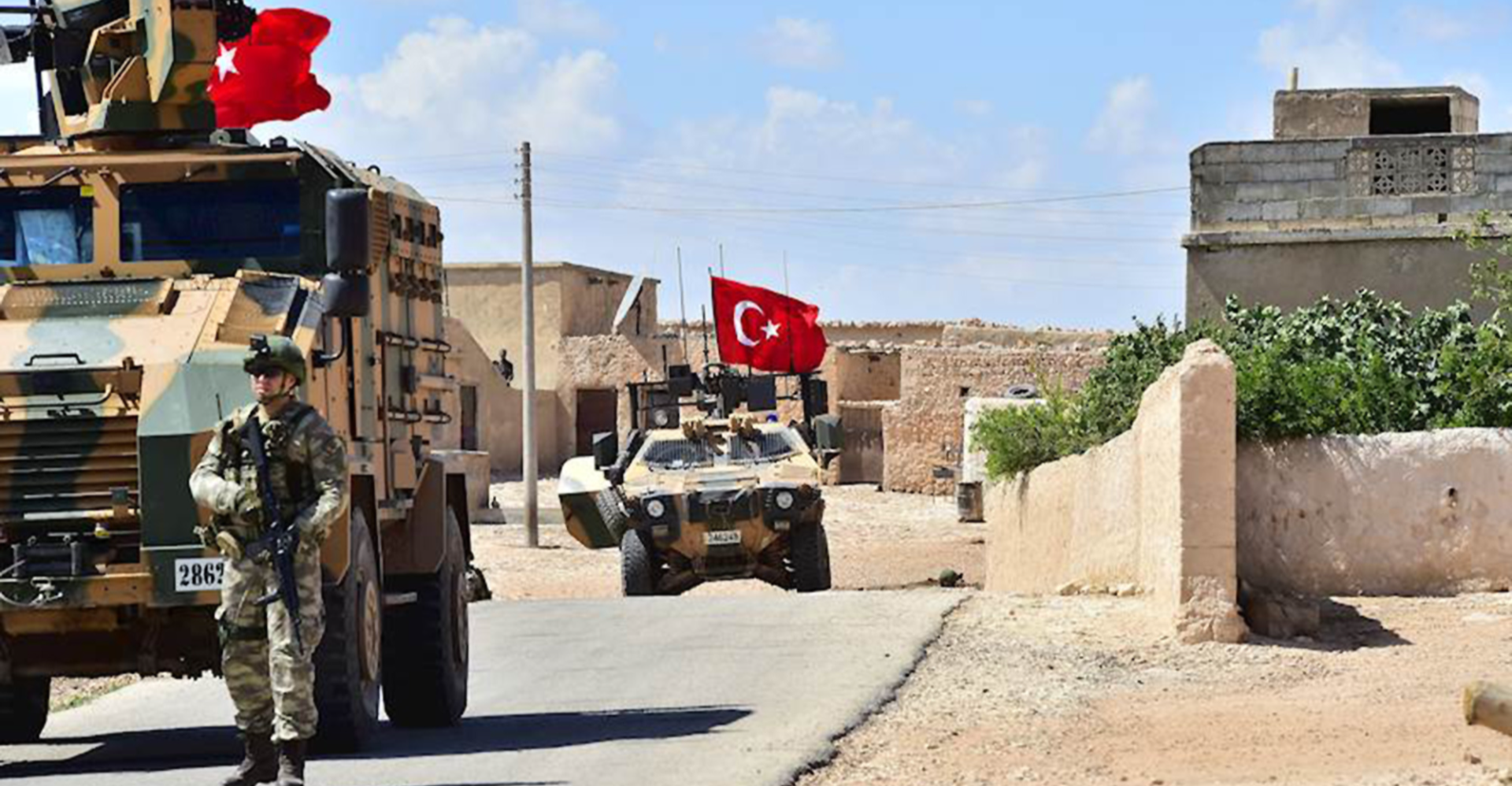"The folly of withdrawal": Call for Biden to avoid surrender to Iran

Shafaq News / The American policy-focused institute, Gatestone Institute, cautioned against the United States withdrawing from Iraq and Syria, deeming such a decision as "surrender" akin to what happened in Afghanistan.
According to the institute, it would be folly of the highest order for the Biden administration even to contemplate a reduction of US forces in the region. With Iran clearly intent on pursuing its proxy war against the US and its allies, the US needs to demonstrate its determination to prevent Tehran from expanding its malign influence in the Middle East, rather than capitulating in the face of Iranian violence.
With Iran seemingly intent on intensifying its confrontation with the US, it is hard to imagine a worse time for the Biden administration even to consider withdrawing any of the US forces currently based in the Middle East.
Prior to the latest Iranian-sponsored attack on US forces based in Jordan, in which three serving American service personnel were killed and another 34 were injured, the White House had already opened negotiations with the Iraqi government on the future of US and other allied troops based in the country.
A statement issued by the office of Iraqi Prime Minister Mohammed Shia al-Sudani, after the first round of talks opened in Baghdad at the weekend, declared that the talks were aimed at ending the US-led coalition in Iraq.
There are currently an estimated 2,500 US troops based in Iraq. The US deployment in the country was originally part of the coalition formed in 2014 to fight Islamic State (IS). The force has continued to operate in Iraq despite the fact that the so-called IS caliphate established in the Syrian city of Raqqa has been destroyed.
Today its main function is to make sure there is no resurgence in IS's terrorist activities in the region, as well as keeping a watchful eye on the numerous terror groups Iran sponsors in the region.
There have also been suggestions that the Biden administration is even thinking of withdrawing the 900-strong US force based in Syria, where they are involved in monitoring Iran's terrorist activities in the country, as well as guarding thousands of battle-hardened IS fighters captured after the fall of Raqqa.
Sinam Sherkany Mohamad, a prominent opposition activist with the Syrian Democratic Council, commented on the proposed withdrawal of US troops:
"If the U.S. withdrew from Syria, our whole region would be at risk. We currently are guarding over 12,500 hardened ISIS fighters who would be released back to the battlefields in the Middle East, North Africa and beyond...
"A U.S. withdrawal would also mean that hundreds of thousands of persecuted minorities who were critical in ending the violent ambitions of ISIS would be subject to retaliation by the Assad regime, and by a Turkish government that is hostile to religious and ethnic minorities," said Mohamad. "This would mean the continued persecution of Christians and other religions, total loss of the current equality of women, and the ethnic cleansing of protected minorities."
While the White House has denied it is planning to withdraw US forces from Syria, four sources within the Defense and State Departments have confirmed to the influential Foreign Policy magazine that the White House is no longer invested in sustaining a mission that it perceives as unnecessary, and that active internal discussions are taking place to determine how and when a withdrawal may take place.
The Biden administration's willingness even to think of withdrawing US forces from Iraq and Syria seems all the more remarkable given that forces in both countries have been actively involved in confronting Iranian-backed militias in the wake of the atrocities committed by Iranian-backed Hamas terrorists against Israel on October 7.
US personnel suffered minor injuries and a member of Iraq's security forces was wounded in a sophisticated attack on Iraq's Ain al-Asad Air Base in mid-January, carried out by an Iranian-backed militia using multiple ballistic missiles.
US forces in Syria also came under fire from Iranian-backed terrorists last year in the immediate aftermath of the October 7 attacks, with the Iran-backed Islamic Resistance of Iraq (IRI) claiming responsibility for multiple drone strikes on US bases in eastern Syria.
The latest attack by the IRI, though, on a US base in Jordan, close to the Syrian border, which claimed the lives of three US military personnel, represents a major escalation in Iran's proxy war against the US: it is the first time an Iranian-sponsored attack has resulted in American deaths, a development that should force the Biden administration to seriously reconsider its withdrawal plans.
With President Joe Biden warning that Washington intends to respond to the attack "at a time and in a manner of our choosing", the priority now for the White House must be to strengthen its military presence in the region, not reduce it. Worse, the vacuum created by any withdrawal by US troops is sure to be filled by adversaries of America and the free world.
While Iran has been anxious to avoid a direct confrontation with the US over the Gaza conflict, the fact that it has subsequently emerged that an Iranian-made drone was used in the attack that killed US personnel will increase the pressure on the White House to confront Iran over its continuing support for terrorist groups in the Middle East.
Any US withdrawal is sure to be seen, especially after the US surrender in Afghanistan, as America running away -- again.
Moreover, the active threat Iran poses to security in the Middle East, with US nuclear expert David Albright warning that Tehran has enough uranium to make 12 nuclear bombs in five months, makes the prospect of a major confrontation between the US and Iran is a very real possibility.
Pentagon sources have certainly made it clear that retaliatory strikes against Iran are a distinct option.
In such circumstances, it would be folly of the highest order for the Biden administration even to contemplate a reduction of US forces in the region. With Iran clearly intent on pursuing its proxy war against the US and its allies, the US needs to demonstrate its determination to prevent Tehran from expanding its malign influence in the Middle East, rather than capitulating in the face of Iranian violence.








